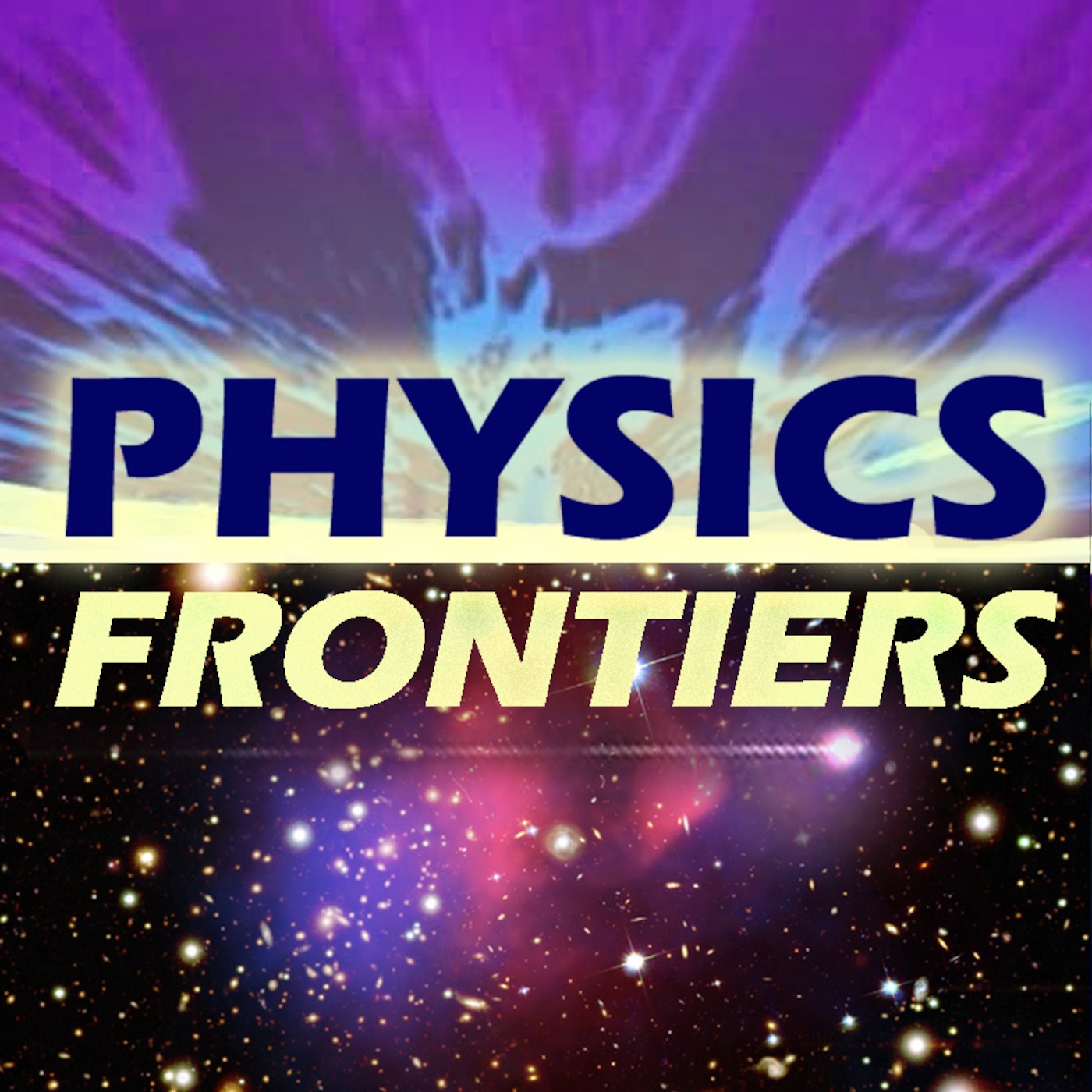

Physics Frontiers
Jim Rantschler
Jim Rantschler and Randy Morrison discuss physics from elementary particles to cosmological effects at the limits of our theoretical knowledge or have recently emerged.
Episodes
Mentioned books

Aug 20, 2017 • 41min
A Gravitational Arrow of Time
Jim and Randy discuss a cosmological theory that purports to find an explanation for the arrow of time in gravitational theory based on the shape and distribution of matter and how it evolves. Show notes: http://frontiers.physicsfm.com/12

Jul 16, 2017 • 37min
Photonic Molecules and Optical Circuits
Randy tells Jim about photonic molecules, pairs of photons that create bound states like molecules do through a force mediated through an ultracold gas and similar ideas in optical circuits. They also discuss application of the same for quantum computing. Show notes: http://frontiers.physicsfm.com/11

Jul 1, 2017 • 48min
Requirements for Alternative Gravity Theories
In this episode Jim and Randy talk about how to evaluate alternative gravity theories. What sort of things do we want them to explain, what experiments do they have to predict, and what theoretical requirements do they have to meet. This is in some ways a continuation of Episode 9 - f(R) Theories of Gravity, but the discussion is relevant to all attempts to amend gravitational theory.Show notes: http://frontiers.physicsfm.com/10In the program, Randy talks about the outline I sent him. I put that up on the Physics Frontiers Blog.

Jun 2, 2017 • 37min
f(R) Theories of Gravity
Jim and Randy discuss gravitational theories that modify general relativity by changing the action using a polynomial dependence on the Ricci scalar. Although not physically motivated, some of these theories produce effects similar to those of dark matter, dark energy, and cosmological constants. Show notes: http://frontiers.physicsfm.com/9

Apr 27, 2017 • 48min
Vacuum Fluctuations and the Casimir Effect
Jim and Randy discuss how vacuum fluctuations produce the van der Waals forces and the Casimir effect. Van der Waals forces are factors in atomic bonds and the Casimir effect produces an attractive force between nanoscale objects. The claim is that vacuum fluctuations -- the production and annihilation of particle-antiparticle pairs -- are the underlying reason for both effects. Show notes: http://frontiers.physicsfm.com/8

Mar 14, 2017 • 51min
Virtual Gravitational Dipoles
Randy discusses what the Cosmological implications of a negative gravitational mass would be with Jim. If there were a negative gravitational mass (as opposed to inertial mass), then every time that an electron-positron pair was created in the vacuum, that would create a gravitational dipole. This in turn would create effects similar to dark matter, dark energy, and a cosmological constant -- and this in turn would have an effect on the origin of the universe. Show notes: http://frontiers.physicsfm.com/7

Feb 14, 2017 • 50min
General Relativity for the Experimentalist
Randy shares some of his favorite papers with Jim: papers on general relativity by engineer and science fiction author Robert L. Forward on how general relativity could be used in a terrestrial environment, including proposals for devices and materials. These papers are "General Relativity for the Experimentalist" and "Guidelines to Antigravity." Show notes: http://frontiers.physicsfm.com/6

Jan 20, 2017 • 58min
Pilot Wave Hydrodynamics
Randy and Jim discuss a physical analogy to quantum mechanics consisting of a droplet of fluid bouncing off of the waves in a similarly composed fluid that were generated by the droplet's own bounces. The analogy is very close to the de Broglie-Bohm interpretation of quantum mechanics. Show notes: http://frontiers.physicsfm.com/5

Jan 5, 2017 • 48min
Phononics
Randy tells Jim about the emerging field of Phononics: using quantum particles of heat in materials for information processing in advanced materials. Show notes: http://frontiers.physicsfm.com/4

Dec 6, 2016 • 41min
Gravitoelectromagnetism
Randy talks to Jim about gravitoelectromagnetism. Based on the similarity between Newtonian gravity and electrostatics, there should be a second gravitational field,the gravitomagnetic field. What are the implications of the existence of such a field, and how large are those effects? Show notes: http://frontiers.physicsfm.com/3


